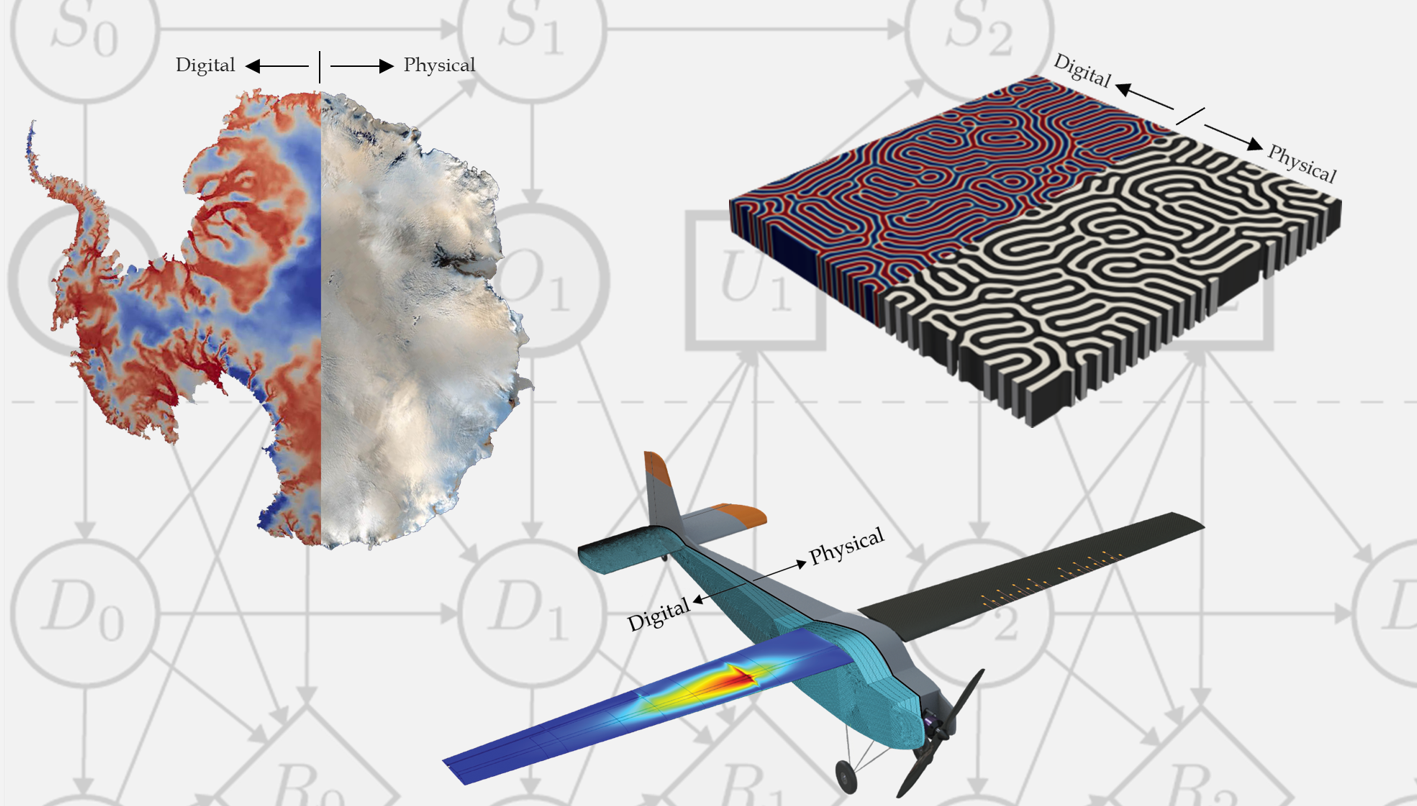A collaborative research team led by the Oden Institute for Computational Engineering and Sciences has been given the green light by the Department of Energy’s Advanced Scientific Computing Research (ASCR) program to establish a major new applied mathematics center for research on digital twin technology.
The Multifaceted Mathematics Integrated Capability Center (MMICC) on Multifaceted Mathematics for Predictive Digital Twins (M2dt) is being led by Omar Ghattas, the Fletcher Stuckey Pratt Chair in Engineering and a professor of Mechanical Engineering, and Karen Willcox, Director of the Oden Institute and a professor in the Department of Aerospace Engineering and Engineering Mechanics at The University of Texas at Austin. The collaboration also includes experts from MIT, as well as three DOE National Laboratories: Argonne, Brookhaven, and Sandia National Labs.
Digital twins virtually represent a physical system by learning predictive models of the system from sensor data and enable decision-making to optimize future behavior. Researchers at the Oden Institute have been working on the design of digital twins for everything from spacecraft to hurricanes, from the human heart to breast cancer tumors.
While the work of the M2dt Center will be widely applicable, the 19-strong research team is focusing on two applications to demonstrate the scope and power of digital twins. The first is a materials science driving application involving a digital twin for real-time control of self-assembling thin polymer films for use in next generation semiconductors. The second is a climate science testbed focused on a digital twin for coupled ice shelf-ocean cavity systems.
